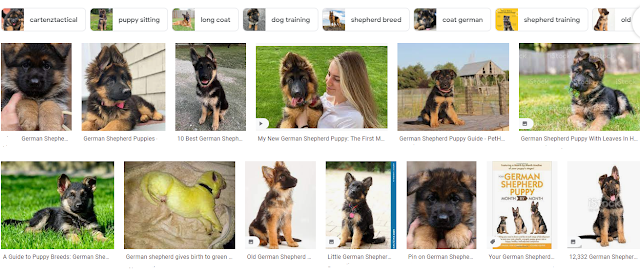Four week old German Shepherd puppy
- Kibble is considered best for the oral health of dogs.
- Kibble declines the urge to chew as well as reduces the stress of your dog.
- Dry food is easy to store and preserve.
- Dry kibble is considered more affordable as compared to wet or canned food.
WET FOOD FOR GS PUPPIES:
Along with dry food, you should also continue wet food. There are several varieties of wet food available in markets that have a range of combinations of ingredients. While selecting wet food, you should keep in mind the breed of your dog as these foods are breed-specific foods. Some of the best-wet food brands for dogs are as follows:
- BLUE wilderness high Protein puppy.
- BLUE buffalo wet dog food
- Pedigree puppy dinner
ADVANTAGES OF WET FOOD:
Wet food largely fulfills the water requirements of GS dogs. Wet food is delicious in taste as well as contains a high level of proteins.
Following are the advantages of wet food:
- Wet food has 80% water content. This much water content prevents dehydration in GS puppies.
- Canned foods contain a high level of protein and fat.
- Canned foods have a low amount of carbohydrates. The high carbohydrate content is bad for GS puppies. So canned foods are ideal for them.
- Wet foods are easily digested.
- Wet canned foods fulfill all the nutritional needs of a 4 week old German Shepherd puppy.
- Canned foods proved to be a complete diet for GS puppies.
- Canned foods are considered beneficial in maintaining urinary functions and the urinary tract.
ALTERNATE DIET FOR YOUR PUPPY:
If you are not liking the idea of cooked or dry food for your puppy, then there is another option. You can give a raw diet to your dog. This raw diet is packed with carbohydrates, vitamins, energy, and other important nutrients.
The owner can include meat in baked form or raw as well. Other ingredients can be added but they should be dog-friendly.
Raw meat is largely beneficial for your puppy’s growth as well as for bone strengthening. This raw diet also helps in fighting against several diseases.
HOW MUCH YOU SHOULD FEED YOUR PUPPY?
There is no rule of thumb that tells how much you should feed your German Shepherd puppy. Owners must know what food should be given at which stage of life.
Smaller Portion Sizes:
Little feed or too much feed, can be detrimental for young puppies. However, it is recommended to divide the whole day’s diet into 3-4 smaller meals.
But the owner should be careful not to overfeed the young puppies as overfeeding can cause vomiting in a 4-week old puppy. A young puppy’s diet is greatly different from an adult’s diet.
Young puppies need a more nutritious diet because they have to develop muscles or a skeletal system. By the time your puppy reaches the 6th month, these 3-4 meals a day can be further divided into 12 meals a day.
Moderation is the Key:
Moderation should be kept in mind in every aspect. Make sure not too much fat in their diets as it can cause hip dyslexia. On the contrary, a diet that is too low in fat content can cause skin dryness and poor muscle development.
The first 12 months of a German Shepherd’s life are very important as they grow rapidly.
At 1-month of age, the puppy needs to have easy access to fresh and clean water. As they grow old, owners should increase their food supply. An owner should be careful to maintain the amount of nutrition that is crucial for their proper development.
WHAT DOES A 4-WEEK OLD GERMAN SHEPHERD LOOK LIKE?
At 4 weeks old, the German Shepherd baby looks much like an adult dog. Get ready to be on your toes as they are super active at this stage. Also, you will observe some cute changes in their appearance.
Do not compare your german shepherd puppy’s appearance with any other puppy of the same age. All dogs grow at their individual pace and there is nothing to worry about if your friend’s GS puppy’s ears have stood up before your puppy’s.
Height: At 4-weeks, the German Shepherd ranges in height from 6 to 9 inches.
Weight: A 4 week old German Shepherd puppy’s weight ranges from 10 to 15 pounds which are 10% of their body weight throughout the life cycle.
Ears: At 4-weeks, your German Shepherd pup’s ears will lay flat but they must become erect in the coming weeks.
Teeth: At this stage, the puppy has most of their teeth developed if not all.
Sound: At 4 weeks of age, the little pups become really noisy. They start barking and growling and greet their mother with a loud noise.
German Shepherd puppy goes through various stages during their life cycle. Just like that their traits and habits also change over time. As a dog owner, you should enjoy each phase and make sure you are equipped with knowledge in order to care efficiently for your fur baby.

